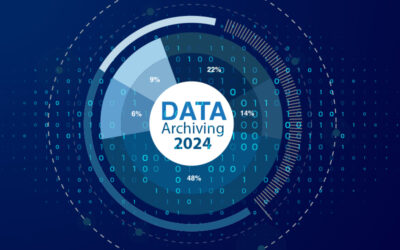Over the last few decades, innovations in technology have brought about tremendous, positive changes in each and every sector, including education. One such change that we have been witnessing for a while is digitization. Book digitization allows educational institutions and libraries to enhance the teaching and learning experience in many ways. Scanning voluminous books requires the experience and specialization that is characteristic of a professional document scanning company.
Today, digitization has become much important than ever as the pandemic has made traditional face-to-face classes ineffective. The educational and teaching landscape has undergone a significant transformation and a remotely operated and highly specialized online education system has emerged in place of brick-and-mortar settings. For millions of school children, education became based on digital platforms and digital communication. This has fueled the need for digitized books that deliver asynchronous learning, increase remote engagement opportunities, and provide a self-paced learning environment.
Book digitization refers to the conversion of physical books into digital format, which is usually undertaken via manual or automated image scanners. This method helps to thoroughly scrutinize the book’s content and record it in a functional, online tool. Another simple option is to rely on a professional document scanning company for efficient and affordable book digitization. The basic goal of the book digitization process is to enhance the book’s reach by replicating and distributing it in various digital spaces. This process allows the books to be formatted, searched, and processed by third-party applications.
Why Book Digitization is Important for Educational Institutions
- Quick and Easy Access: Book digitization enables an educational institution to access and share the book in the digital form from anywhere, which breaks the barriers of geographical location, time, and simultaneous access of the learners. Learners can easily and quickly download and access the books of their choice, right from the comfort of their homes. It benefits students across the world, allowing them to continue their education without having to compromise their valuable time, curricular resources, or learning abilities.
- Space and Cost Saving: Though reading the physical copy of a book has its own charm, storing the hard copies in an educational institution requires physical space and costs (such as onsite/offsite rents or maintenance costs). Digitizing books eliminates the need for more space and reduces costs such as rent and offsite storage fees. Investing in an once-in-a-lifetime digitization process allows educational institutions to reap the benefits for a long time to come.
- Restore Damaged Books: Digitizing books helps to bring damaged books to life and make them viewable once again.
- Smarter, Quicker Decisions: If your data – be it a any document or book – is digitized, then all your data can be analyzed with high speed, accuracy and efficiency. Digitized data is stored in an ERP that can be integrated with powerful analytic tools which can process large amounts of data instantly and provide real time changes and updated data. For educational institutions, this can be viewed on the school analytics dashboard which provides a graphical representation of this data. The easily digestible data can drive progress across the campus and support improved decision making.
- Easy Sharing or Distribution: Book digitization offers numerous opportunities for educational institutions. One of the major advantages is that it allows sharing digitized books – through email, on the cloud or other online platforms, anywhere and anytime -and their inherent content with learners online in a professional, efficient, and equitable way. With digitized content, learners can continue with their academic activities without any hindrance whatsoever.
- Environment-Friendly: With digitized books, there’s no need to print them for distribution, which helps save paper and increases the eco-friendly quotient of your company. In the current times, indulging in such environment-friendly operations can help your institution gain additional funding, greater praise, and higher credit.
During these challenging times, book digitization can go a long way in helping you protect copyrights, increase access, save space, and achieve cost efficiency. When implemented using efficient document scanning services, data entry, and quality control, digitization can work wonders. Experienced providers of outsourced solutions can handle bulk document scanning efficiently.




